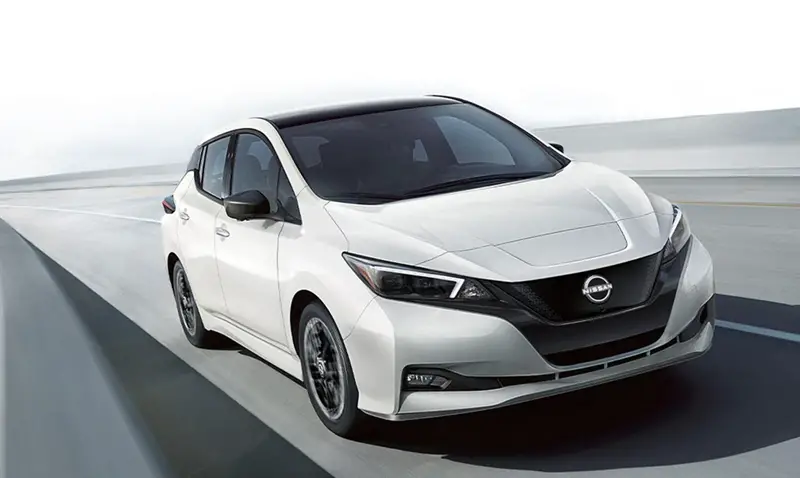Overview
When your car starts making strange noises or breaks down unexpectedly, you’re faced with a tough question: is it worth fixing my car, or should I repair or replace my car? This decision isn’t always straightforward and depends on numerous factors including the cost of repairs, the car’s age and condition, your financial situation, and even your emotional attachment to the vehicle. Before you hand over your credit card to the mechanic or start browsing for a new ride, let’s explore how to make this decision wisely.
View more posts on our Wrench and Ride blog
Car repair costs can add up quickly, turning what seemed like a minor fix into a major expense. Sometimes throwing good money after bad doesn’t make financial sense, but other times, fixing your car is actually the smarter financial move. So, is it worth fixing my car when the costs keep creeping up? The key is knowing how to evaluate your specific situation to make the best choice for your circumstances and budget.
Think about the last time your car broke down. Was it a simple fix or part of an ongoing series of issues? The repair-or-replace dilemma becomes especially relevant when you’re dealing with repeated problems or receive an estimate that makes your jaw drop. Should I repair or replace my car in this case? Let’s dive into how to analyze whether it’s time to invest in repairs—or start shopping for something new.
Repair vs Replace Car Calculator
Evaluating Your Car's Current Condition
The first step in answering is it worth fixing my car is taking an honest look at your vehicle's overall condition. Age is just one factor—some cars can run reliably for 15+ years, while others become problematic much sooner. Consider how many miles are on the odometer. Most modern vehicles can last 200,000 miles or more with proper maintenance, but as you approach this milestone, major components may begin failing more frequently.
Read more: Mobile One Stop Auto Repair : 4 Reasons they Save You Time and Money
Look at your maintenance history. Have you kept up with regular service intervals? A well-maintained car generally presents fewer surprise issues than one that's been neglected. Also, consider the pattern of repairs—occasional maintenance is normal, but if you're visiting the mechanic monthly, that’s a red flag and may make you ask again: is it worth fixing my car or am I just prolonging the inevitable?
Some financial benchmarks can help guide you:
- Current market value of your car (check Kelley Blue Book or similar)
- Total repair costs as a percentage of your car's value
- Expected lifespan remaining after repairs
- Reliability record for your specific make and model
Another crucial factor is the nature of the current problem. Engine or transmission issues typically cost thousands to repair and might signal the beginning of more expensive problems. On the other hand, things like brakes, alternators, or even timing belts are normal wear items and don’t necessarily mean your car is on its last leg.
A trusted mechanic can be a valuable resource here. Ask for their honest assessment of your car's condition and whether they see other potential issues looming. Their expert insight can help you determine should I repair or replace my car, and whether it’s worth fixing your car based on what’s under the hood.
7 Key Questions to Decide: Is It Worth Fixing My Car or Time to Replace It?
Wondering is it worth fixing my car or should you move on? These seven questions will help you evaluate the situation realistically and make a confident, financially smart choice.
1. What’s the Total Cost of the Repair?
If you're asking is it worth fixing my car, start by checking the cost. Does the repair exceed 50% of the car's current market value? If so, that’s often a sign it may not be worth the investment. A $3,000 repair on a $4,000 car? Think twice.
2. Is This a One-Time Problem or a Pattern?
If your vehicle breaks down frequently, is it worth fixing my car again and again? Ongoing issues can signal deeper problems that will keep costing you. A single fix is one thing—repeat failures are another.
3. How Old Is the Car and What’s the Mileage?
Car age and mileage matter. You might be asking is it worth fixing my car when it’s already pushing 200,000 miles. At that point, major systems may start failing. On the other hand, a younger car with fewer miles might still be a solid bet after repairs.
4. What’s the Maintenance and Repair History?
Ask yourself: Is it worth fixing my car if I've already dumped thousands into it this year? A reliable service history and minor issues may suggest it is. But if you're seeing big bills frequently, it might be time to walk away.
5. Will This Repair Extend the Car’s Life Meaningfully?
Is it worth fixing my car if the repair only adds a few months of life? Probably not. But if a repair gets you another 2–3 years of solid driving, it could still be the cheaper option compared to buying something new.
6. Does My Car Still Fit My Life?
Even if it runs, ask is it worth fixing my car if it no longer meets your needs. Maybe you need more space, better fuel economy, or updated safety tech. Don’t ignore lifestyle shifts that make your current car obsolete.
7. Can I Afford a Replacement—Now or Later?
If you're on the fence asking is it worth fixing my car, take a hard look at your finances. Fixing may be more affordable in the short term. But if the car keeps breaking, those “cheap” repairs can snowball. Consider whether fixing it buys you time or just delays the inevitable.
The 50% Rule and Other Financial Considerations
You've probably heard of the 50% rule: if repair costs exceed half of your car's current value, it's time to consider a replacement. While this guideline provides a useful starting point, the full picture is more nuanced. Is it worth fixing my car if the repairs are close to this threshold? Surprisingly, sometimes yes.
For instance, if your vehicle is worth $6,000 and needs $2,800 in repairs, but those repairs will extend its lifespan by another few years, that may be a smarter financial decision than taking on new car payments. Think in terms of cost-per-mile or cost-per-year: how many more reliable miles can you get from your current car if you repair it? The answer often reframes the question of should I repair or replace my car into something more calculable.
Consider your financial situation carefully. If you have the cash on hand for repairs but would need to finance a new vehicle, factor in loan interest, taxes, and insurance. A $3,000 repair bill paid in cash might sting, but it could still be much cheaper than 60 months of car payments plus higher insurance premiums. In that context, is it worth fixing my car becomes less about the mechanic’s bill and more about total cost of ownership.
Also think about how reliable your car has been historically. Has it been relatively problem-free until recently? Or have you dealt with breakdowns every few months? If it's the latter, you may find yourself asking again: should I repair or replace my car, or am I just putting off the inevitable?

Ongoing Costs
Don’t forget about ongoing costs when asking, is it worth fixing my car in the long run. Older vehicles often consume more fuel and may require more frequent maintenance as they age. However, they typically cost less to insure and register than newer models. To make a sound decision, do a side-by-side comparison by calculating:
- Monthly cost of keeping your current car (average repairs, fuel, insurance)
- Monthly cost of a replacement (payment, depreciation, fuel, insurance)
For many drivers, the choice between repair and replacement hinges on predictability. A newer vehicle might cost more overall, but the expenses are often more consistent than unexpected repair bills. If budget stability and reliability matter to you, this might influence your answer to should I repair or replace my car.
When Sentiment Meets Practicality
Is it worth fixing my car if I have an emotional connection to it? Sometimes, cars aren’t just machines—they’re memory holders. From your first road trip to school runs or life milestones, your vehicle might carry sentimental value that can’t be measured in dollars.
If you're deeply attached to your car, know its quirks, and feel loyal to it, you may choose to fix it even when it’s not the most rational financial decision. In contrast, if your car causes regular stress or worry about unexpected breakdowns, peace of mind might be worth the cost of moving on. That emotional burden is part of the bigger question: should I repair or replace my car, or is it time for a clean slate?
Lifestyle Needs
Lifestyle changes also play a big role in the decision-making process. Ask yourself: is it worth fixing my car if it no longer meets your daily needs? If your family has grown, your commute has changed, or your physical requirements are different now, your current vehicle may simply not fit your life anymore.
Even if the repair costs are manageable, the inconvenience of a car that doesn't match your lifestyle might push you toward a replacement. In this case, the repair-or-replace question aligns with your broader life goals.
Safety
Another vital factor in the equation is safety. Older cars often lack modern features like blind-spot monitoring, lane departure warnings, and enhanced crash protection. Is it worth fixing my car if it lacks critical safety technology that could protect you and your passengers?
Newer cars are equipped with advanced driver-assist systems and improved crash ratings, which can make a major difference in an accident. Especially if you're transporting children or have a long commute, the added safety of a newer model can tip the scales when deciding should I repair or replace my car.
Things to Consider
To help weigh your options, keep these questions in mind:
- Do you have an emotional attachment to your current vehicle?
- Are you stressed about its reliability?
- Has your lifestyle outgrown what your car offers?
- How do safety features in newer cars compare?
- Can you make repairs now and plan for a replacement later?
Sometimes the best solution is a hybrid approach. Repair your current car to keep it roadworthy while you save for a replacement down the road. This strategy buys you time to research vehicles, set a budget, and avoid making a rushed financial decision.
Is It Cheaper to Repair or Replace a Car? Doing the Math
Let’s crunch the numbers. To answer the question is it worth fixing my car, or more broadly, is it cheaper to repair or replace a car, you need to consider more than just the initial repair quote or sticker price of a new car. Instead, calculate the total cost of ownership for both options over the next 3 to 5 years.
For your current vehicle:
- Immediate repair costs
- Anticipated future repairs
- Regular maintenance expenses
- Fuel consumption and costs
- Insurance and registration fees
- Vehicle resale value at the end of the period
For a potential replacement:
- Down payment or full purchase cost
- Monthly payments (if financing)
- Differences in insurance premiums
- Fuel efficiency gains or losses
- Predicted maintenance and service costs
- Depreciation over time
Often, this math paints a clearer picture. What may seem like an expensive repair today could cost significantly less over time compared to rapid depreciation and higher insurance on a new car. In many cases, the answer to is it worth fixing my car is yes—especially if the repair extends your vehicle’s life without recurring issues.

Time Spent on Repairs
When asking yourself, is it worth fixing my car, don’t overlook the hassle factor. Time is money—so the hours spent scheduling repairs, arranging alternative transportation, and worrying about vehicle reliability all carry value. For those with packed calendars, this inconvenience alone might justify spending more for a newer, dependable vehicle.
Timing matters too. If your car suddenly needs extensive work but you were already planning to replace it within the next 12 months, it might make more sense to fast-track your upgrade. On the other hand, if you're financially stretched right now but expect more breathing room in a few months, repairing your current vehicle could be a smart, temporary solution. The answer to should I repair or replace my car often depends on short-term versus long-term priorities.
Should I Repair or Replace My Car? Making the Final Decision
After running all the numbers and weighing the emotional and practical considerations, you might still wonder, is it worth fixing my car right now—or would replacing it serve you better?
When repairing usually makes more sense:
- Your car is under 10 years old and has fewer than 150,000 miles
- The repair costs are less than what you'd spend on one year of new car payments
- The problem is a one-off issue, not part of a recurring pattern
- Your vehicle still meets your lifestyle needs
- You've maintained the car well and are confident in its history
When replacing your car may be the smarter choice:
- Repair costs are close to or exceed the vehicle’s market value
- Multiple components are failing at the same time
- Replacement parts are becoming scarce or expensive
- You feel unsafe or stranded too frequently
- Your lifestyle has changed significantly, and your current car no longer fits
So, should I repair or replace my car? It’s not always black and white. Use these indicators as a guide, but don’t forget to account for personal priorities, such as financial goals, safety, and peace of mind.
No Perfect Answer
There’s rarely a one-size-fits-all answer to is it worth fixing my car. Often, the best path lies in balancing trade-offs rather than choosing a “perfect” solution. A slightly more expensive choice might bring peace of mind, while sticking with your current vehicle might help you meet financial goals sooner.
If you opt for repairs, get a second opinion and quote before committing. Repair shops vary in both pricing and diagnosis, so it's wise to compare. If you're leaning toward replacement, take the time to research thoroughly—rushing into a big purchase can lead to regret.
Case Studies
Emily’s Honda Civic — Budget vs. Logic
Vehicle: 2008 Honda Civic
Mileage: 180,000 miles
Problem: Blown head gasket ($2,200 repair)
Is it worth fixing my car? That’s what Emily asked after a big estimate. Her Civic had no other issues, and the mechanic said it could run for years with proper care.
Decision: Repair
Why: No loan, low insurance, and confidence it would last 2–3 more years.
Should I repair or replace my car? In her case, repair was the smart move.
Mike’s Explorer — Enough Is Enough
Vehicle: 2012 Ford Explorer
Mileage: 165,000 miles
Problems: Transmission, suspension, A/C issues ($1,500+ total)
Mike kept wondering, is it worth fixing my car again? The constant repairs made him rethink everything.
Decision: Replace
Why: Too many failing systems and higher fuel/repair costs.
Should I repair or replace my car? For Mike, replacement was overdue.
Sarah’s Sentimental Camry
Vehicle: 2005 Toyota Camry
Mileage: 210,000 miles
Problem: Timing belt and brakes ($1,800)
Sarah asked herself, is it worth fixing my car if it’s mostly sentimental? Her mechanic confirmed the car was otherwise solid.
Decision: Repair
Why: The Camry runs great, fits her needs, and holds emotional value.
Should I repair or replace my car? Repair made the most sense—for now.
Red Flag Repairs: When to Ask “Is It Worth Fixing My Car?”
Not all repairs are created equal. Some are isolated, routine fixes—others are warning signs of much bigger issues on the horizon. If you find yourself asking, “Is it worth fixing my car?” after one of these repairs, it might be time to dig deeper.
1. Transmission Failure
Transmission repairs often cost $3,000 or more—and if your vehicle is already aging or has other issues, this one fix might not be worth it. Many people ask, “Is it worth fixing my car if the transmission goes?” Usually, it’s a sign the end is near.
2. Blown Head Gasket
A blown head gasket is a serious and expensive problem, often running over $2,000. Worse, it can indicate overheating or deeper engine damage. If your mechanic says it’s time for this repair, ask yourself seriously: Is it worth fixing my car or replacing it?
3. Electrical System Problems
Wiring issues, faulty ECUs, or mysterious battery drains can be hard to diagnose and even harder to permanently fix. If you’re constantly battling dashboard lights and electronic glitches, you may find yourself wondering is it worth fixing my car again and again.
4. Major Rust or Structural Damage
Once rust starts creeping into the frame or undercarriage, it’s hard to stop—and often unsafe. If your car has visible rust or failed inspection due to corrosion, replacing might be safer and smarter.
5. Multiple System Failures
One big repair might be manageable. But if your car needs suspension work, brake system repair, AND a new catalytic converter, it’s a major red flag. When repairs start stacking up like dominoes, the question “Is it worth fixing my car?” becomes unavoidable.
The Bottom Line:
If you're seeing one of these red flag repairs, take a step back. Don’t just focus on today’s estimate—think long-term. A car that's bleeding cash and breaking down regularly is more than just inconvenient—it’s financially risky. When in doubt, ask your mechanic for an honest opinion and consider whether investing further really makes sense.
If you’ve asked yourself “is it worth fixing my car” more than once this year, it might be time to explore other options.
Environmental Impact
Repairing Your Car Reduces Waste
When asking is it worth fixing my car, the environment might not be the first thing on your mind—but it should be. Choosing to repair instead of replace helps reduce waste. Each time you keep a car on the road longer, you're delaying the energy-intensive process of manufacturing a new one. That means less mining, less steel production, and fewer plastics going into circulation.
In fact, extending the life of your current vehicle—even by just a few years—can significantly cut down on the carbon emissions associated with building a new car. So in many cases, is it worth fixing my car? Yes, especially when you're thinking green.
When Replacement Is the Greener Option
On the other hand, if your vehicle is an older model with poor fuel economy and outdated emissions technology, the eco-friendly move might actually be to upgrade. You might ask yourself, should I repair or replace my car to lower my carbon footprint? If your current car is burning excessive fuel or failing emissions tests, replacing it with a hybrid, electric, or even just a more efficient gas-powered car can be a smart move—for both your wallet and the planet.
It’s not always a simple decision. That’s why is it worth fixing my car becomes more than just a financial question—it’s also about energy efficiency, emissions, and long-term sustainability.
Sustainable Choices for Every Outcome
Regardless of which direction you go—repair or replace—there are environmentally conscious steps you can take. If you decide to fix your car, use recycled parts when possible and ensure proper disposal of old components. If you opt for replacement, consider buying a fuel-efficient vehicle or even a certified pre-owned model to reduce manufacturing demand.
Ultimately, asking should I repair or replace my car includes not just cost and convenience but also how your decision affects the planet. Every small step toward sustainability counts.
| Factor | Repairing Your Car | Replacing Your Car |
|---|---|---|
| Waste Reduction | ✅ Keeps vehicle out of landfill | ❌ Adds to manufacturing waste |
| Carbon Footprint | ✅ Lower emissions if car is efficient | ❌ Higher from vehicle production |
| Fuel Efficiency | ❌ Often lower in older vehicles | ✅ Improved MPG in newer models |
| Emissions Standards | ❌ May not meet current regulations | ✅ Complies with modern standards |
| Sustainability Score | Moderate to High (depends on condition) | High (especially for EVs or hybrids) |
Frequently Asked Questions
Is it worth fixing my car if it keeps breaking down?
It depends on what’s breaking and how often. If you’re facing minor issues like brake pads, belts, or sensors, those are normal wear-and-tear items. But if you're dealing with repeat breakdowns or costly repairs like a failing transmission or engine, it’s time to seriously consider: is it worth fixing my car anymore, or has the time come to move on? If breakdowns are frequent and draining your time and budget, replacing may be the smarter route.
Should I repair or replace my car after 10 years?
Not automatically. Many well-maintained vehicles easily last 15–20 years. What’s more important is the car’s mileage, overall reliability, and the nature of current repairs. If the engine runs smoothly and repairs are minor, holding on could be worth it. But if you’re asking, should I repair or replace my car after a decade of wear, and the repair bills keep climbing, upgrading might be a safer and more cost-effective option.
How do I decide if a repair is too expensive?
The 50% rule is a helpful benchmark—if a repair costs more than 50% of your car’s current value, is it worth fixing my car becomes a valid question. Also think about longevity. A $2,000 fix that extends the car’s life by three more years might still beat the cost of monthly car payments.
Is it cheaper to repair or replace a car long-term?
It varies. In the short term, repairs are usually cheaper. But if those fixes are constant, it may cost you more in the long run. Replacing your vehicle can offer reliability, improved fuel economy, and peace of mind. When in doubt, weigh whether should I repair or replace my car based on your financial goals, repair history, and lifestyle needs.
What if I still owe money on my car—should I fix it or replace it?
If you're upside down on your loan (you owe more than the car’s worth), repairing usually makes more financial sense. You’ll avoid rolling negative equity into a new loan. But again, ask: is it worth fixing my car if repairs won’t extend its life meaningfully or if it continues to be unreliable? Balance your loan status with practicality.
Do I need to replace my car just because it's old?
Not at all. Age alone isn’t a dealbreaker. Many cars run past 200,000 miles with proper maintenance. Instead of looking at age, consider reliability, safety features, and whether it meets your current lifestyle. Still not sure? Ask yourself: should I repair or replace my car based on its performance, cost trends, and how well it fits your day-to-day life.
Do you need mobile mechanic? Find one on the Mobile Mechanic Directory
Final Thought
As you wrap up your decision-making process, try to separate emotional attachments from objective facts. It’s perfectly valid to love your car, but be honest about whether that love is clouding your judgment. A simple pros and cons list—financial, functional, and emotional—can help bring clarity.
Whether you choose to keep your car or start fresh, what matters most is making a decision you can stand behind. If you’ve done your homework and weighed all the angles, you’ll feel more confident either way. Whether you choose repairs or a replacement, you'll be driving forward with peace of mind—having solved your own version of the “should I repair or replace my car” dilemma.





